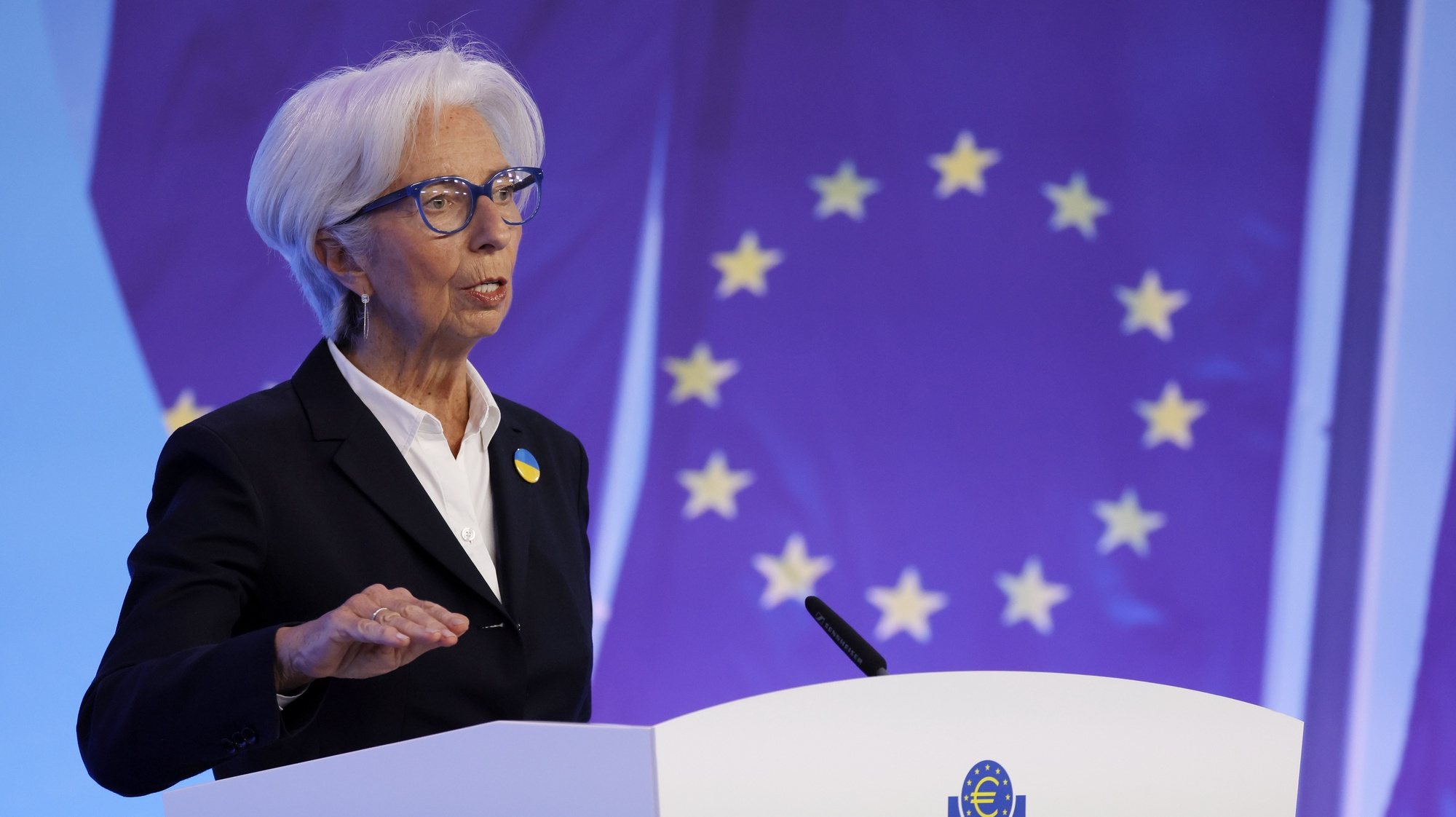Portugal was the fifth country in the euro area with the lowest remuneration for new term deposits in June, with an average interest rate of 1.58%, 70% lower than the average remuneration practiced in the euro area.
According to the European Central Bank (ECB), in June, the average interest rate on new term deposits in the euro zone was 2.70%, with Croatia being the worst remunerator (1.07%), followed by Cyprus ( 1.26%), Slovenia. (1.42%) and Greece (1.52%).
Throughout this year, Portugal has been climbing some positions, since in December 2022 the Portuguese banking system was the worst paid (average interest of 0.35%), in May it was ‘only’ the fourth worst (1. 26%) and in June it was the fifth worst paid with an average interest rate of 1.58% (70% less than the 2.70% average for the euro area).
The countries with the best yield on deposits, in the euro zone, are Estonia (average interest rate of 3.75% in June), Italy (3.33%) and France (3.32%).
The deposits are better remunerated the greater the amount deposited and the longer the duration of the stay. In June, new deposits with a maturity of up to one year (representing 79% of new term deposits) yielded an average of 1.58%, new deposits between one and two years had an average yield of 1.47 % and new deposits for more than two years an average rate of 1.76%, according to the Bank of Portugal (BdP).
In Spain – origin of the large banks that operate in Portugal (Santander and BPI) – the interest rate is below the average for the euro zone, but higher than that of Portugal, having been 2.21% in June.
The average interest rate for June of 1.58% refers to the new term deposits constituted in that month. New sight deposits, for their part, did not receive any remuneration (0%).
According to data from the ECB, in June Portugal was the worst country in the remuneration of sight deposits (‘ex aequo’ with Cyprus). As usual, sight deposits have a lower remuneration than time deposits, with the average interest rate on sight deposits in the euro zone being 0.23%.
Regarding the interest rate of the ‘stock’ of term deposits of individuals, according to BdP data, this was 0.53% in June, above both May (0.4%) and June 2022 (0.07%).
The ‘stock’ refers to all time deposits, whether they are deposits made recently or older.
Old deposits may have been made, for example, when interest rates were negative. Thus, banks complained that they were unable to reflect negative interest on deposits (ie not being able to charge interest for receiving deposits) when they were required to reflect negative interest on credits.
Since July 2022, the ECB has been raising official interest rates as a measure to combat high inflation. Last July, Frankfurt raised again, the refinancing rate rose to 4.25%, the deposit facility rate to 3.75% and the marginal lending facility rate to 4.5%.
To arrive at similar values for the reference rates, it is necessary to go back to 2008. The interest paid on deposits was then quite high. In June 2008, according to BdP data, the average interest rate on new deposits from individuals was 4.22%.
The governor of the Bank of Portugal said at the end of June, in an interview with RTP, that interest rates were then, on the eve of the financial crisis, so high because “banks were really stressed about having resources, there was no money ”.
For Mário Centeno, nobody wants to “go back to that moment” because all the Portuguese know “well what it costs to recover the banks”.
Total deposits invested in banks operating in Portugal amounted to 174.9 billion euros in June, 8% less than in the same month of 2022.
Especially in the first months of this year, many deposits left Portuguese banks to be invested in savings certificates (which gave better returns, with a maximum rate of 3.5%). At the beginning of June, the Government lowered the remuneration of savings certificates, which was criticized and was understood as giving in to pressure from the banks, to which both the Executive and the banks refused.
Source: Observadora
